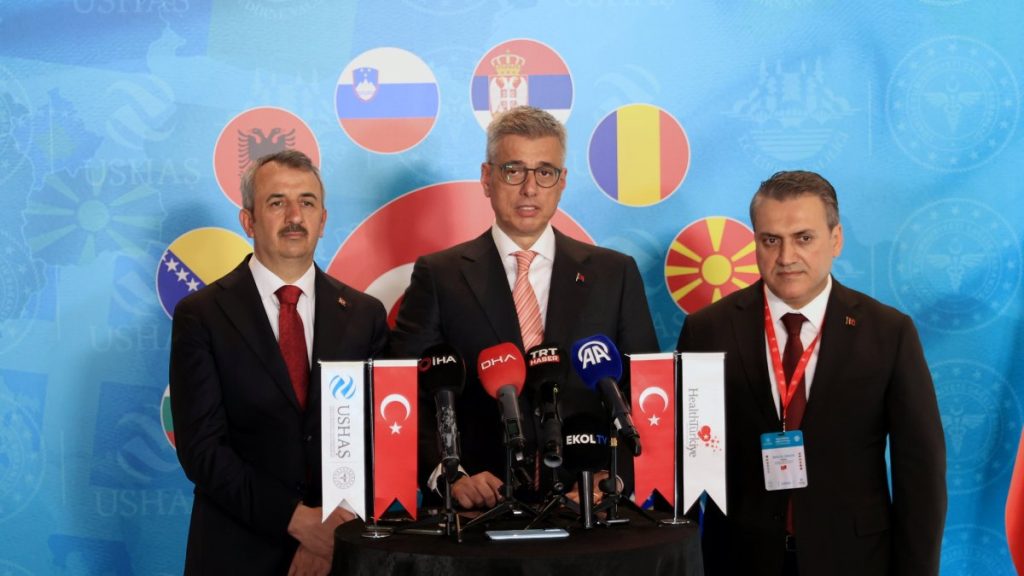Health Minister Kemal Memişoğlu provided an update on the recent 6.2 magnitude earthquake that struck off the coast of Silivri in the Marmara Sea, confirming that 32 individuals are currently being treated for injuries.
“Twenty-eight of the injured are in Istanbul, with the remaining victims in other cities. Their conditions are stable, and there are no life-threatening injuries,” Memişoğlu said.
Speaking at a news conference in Edirne, where he attended the Balkan Health Business Forum, Memişoğlu explained that the injuries were caused by panic-induced accidents rather than direct earthquake impacts. “There were no direct injuries in hospitals due to the earthquake. The injuries occurred as people tried to escape during or after the tremor. The injuries are primarily orthopedic, related to trauma,” he said.
Memişoğlu acknowledged that earthquakes are a harsh reality for Türkiye and emphasized the improvements in disaster preparedness since the devastating Feb. 6 quakes. He also stressed that health care services in the earthquake-prone regions have improved significantly compared to previous times, though he pointed out the need for continuous preparation.
“We cannot bring back the 52,000 lives lost. That is why we must be prepared not just with buildings but with the right mindset. If we are living in or building dilapidated structures, it’s our responsibility,” Memişoğlu said, reiterating the adage, “Earthquakes don’t kill, buildings do.”
Memişoğlu also highlighted the readiness of health care teams, stating: “In the 6.2 magnitude earthquake in Istanbul, our teams automatically went to the field without waiting for official instructions. Our helicopters took off within seconds to start response procedures without having to wait for orders. We have matched our hospitals regionally with others across Türkiye, and we’ve ensured that major hospitals can function autonomously for 12 hours during an earthquake.”
Additionally, Memişoğlu announced that a planned earthquake drill took place today in Istanbul, with medical professionals and administrators from 16 cities outside Istanbul participating to familiarize themselves with emergency procedures.
Regarding health tourism, Memişoğlu confirmed that the Ministry of Trade provides substantial support for the sector, with many health tourists benefiting from the incentives.
He also mentioned recent changes in legislation that will improve tracking and quality assurance in health tourism. “Through the ‘HealthTürkiye’ portal via USHAŞ, patients will be able to know exactly what services they will receive,” he said.
He underscored Türkiye’s commitment to health tourism, stating, “We view health tourism as one of the locomotive sectors of our economy, and it’s not limited to Istanbul. Cities like Edirne, Antalya, Nevşehir, Diyarbakır, Rize and Trabzon are also making significant strides.”
On the role of public hospitals in health tourism, Memişoğlu emphasized the inclusion of all sectors, stating, “Public hospitals, private sectors, universities, and medical centers will all be integrated into the health tourism process. Our goal is to provide the highest quality care, irrespective of the sector.”
Memişoğlu concluded by urging citizens to remain prepared for any eventuality. “We must all be ready for an earthquake, not only with the proper infrastructure but also with the right mindset. The loss of life is irreplaceable, and preparedness is the key.”


